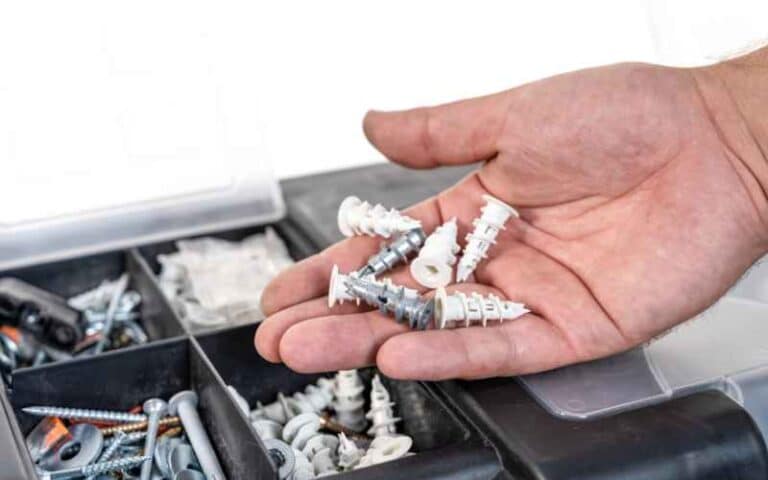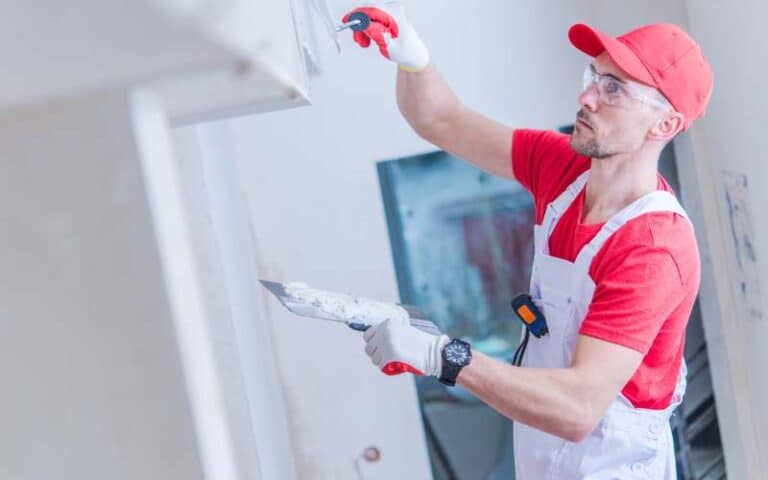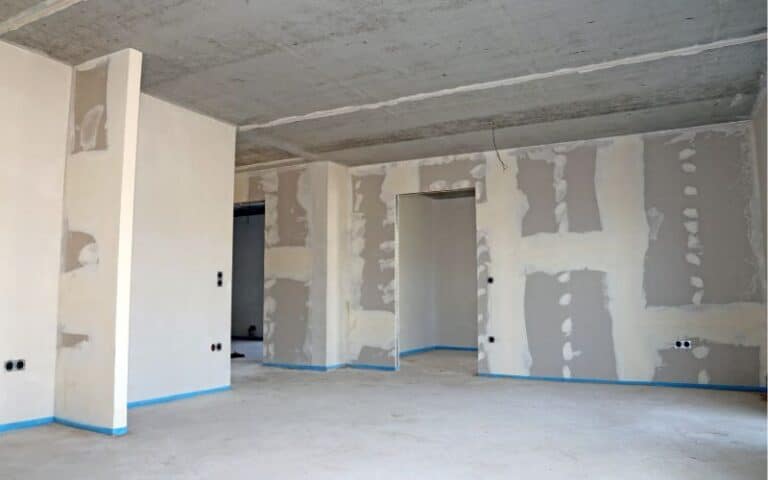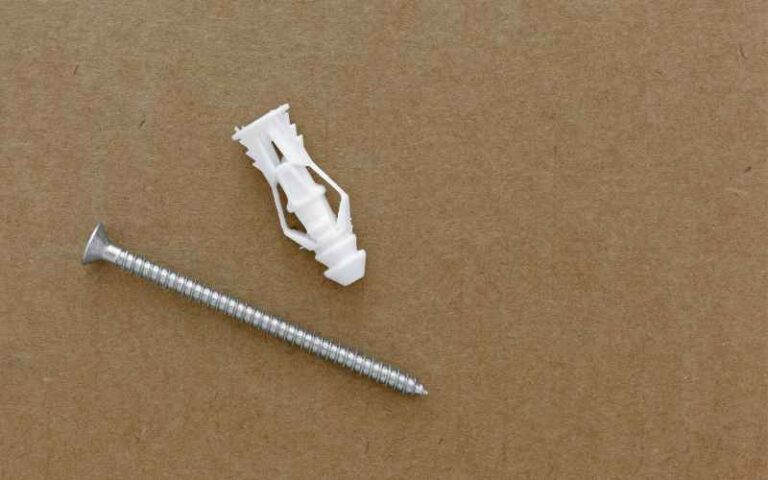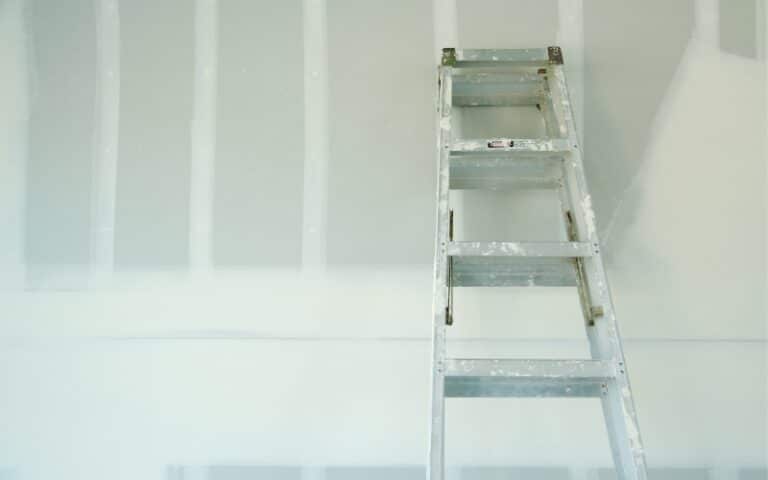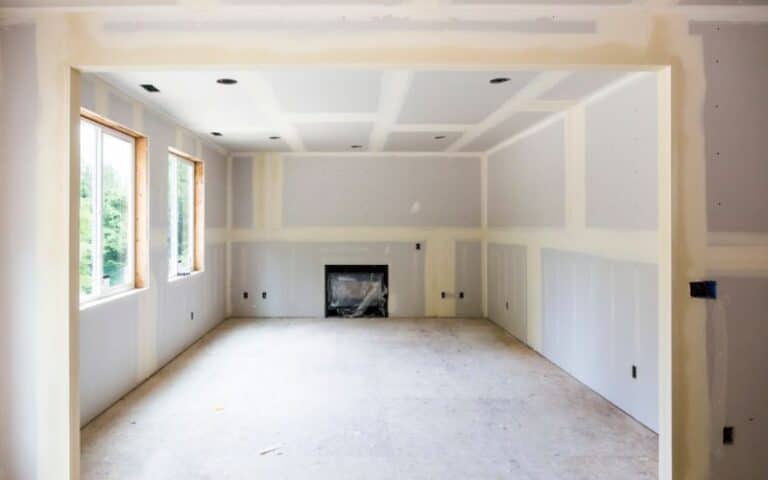Like most things, you can’t find a screw in size to fit all your building purpose.
If you build your house with the wrong set of screws, your house could crumble into a heap of rubble.
So, always be sure of the screws you use. However, if you have little knowledge here, you’re lucky!
You’ll find in this guide what you need to know about the right screws, when to use them, and much more.
You can’t use construction screws to install drywall. And while construction screws are great for building or adding support beams to a home, drywall is entirely different. The best way to install drywall is to use drywall screws that can sink into the softer gypsum board.
Indeed, by the end of this guide, you’ll have known the different types of screws for your building project and the structures you should use them on.
Ready for a Drywall Quiz?
Differences Between Drywall And Construction Screws
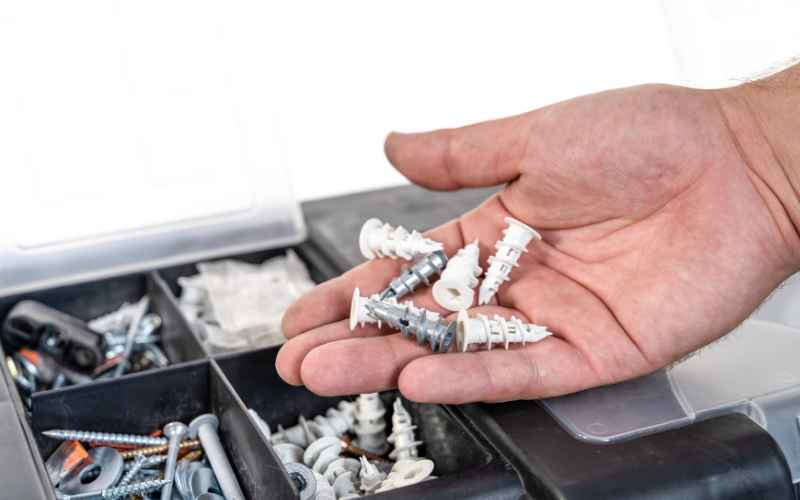
There are many types of screws with different designs and building functions.
Drywall screws, as the name implies, are ideal for drywall use, while construction screws serve all construction purposes.
Thus, you shouldn’t just start your building project with the first box of screws on which you happen to lay your hands, as there are specific screws for each.
Before we delve further into this distinction, it’s essential to know what drywall screws and construction screws are and what you should use them for.
#1. Drywall Screws
Drywall screws are screws designed especially for attaching sheetrock (drywall) to metal or timber.
These screws, commonly known as framing screws, can thread through sheetrock without causing damage.
Also, builders use drywall screws to attach sheetrock to wood studs or metal. These types of screws also feature what is known as Philip’s head.
Although drywall screws sometimes have square heads, you can use either of the screws still to maintain the connection between a screw and screwdriver tip.
Drywall screws work best for fastening full sheets on drywall.
So, this is why you shouldn’t use any regular screw on drywall, as drywall screws usually have deeper threads that will prevent any dislodging.
Additionally, they make these screws from steel. So they’ll require a power screwdriver to help drill and fasten them to a wall.
However, it’s always important to note that most drywall screws have coarse threads, so you can securely attach them to gypsum and then to a metal or wooden post.
#2. Construction Screws
Meanwhile, construction crews have different types and shapes for any construction project.
These types of screws differ in length and width, thread design, and head shape.
One of the most common examples of these screws is the flat head, which can sink into wood or wall to the point that the head becomes completely flush with the surface.
Also, there are oval or round head screws (pan heads) which you can use on surfaces that you don’t need to sink the head of the screw into—for example, plastics.
However, there are some oval and round head screws that you can use for decorations. For instance, the brass screws you might see peeking through your sofa.
Now you’ve known the basics of drywall and construction screws, here’s a tabular representation of their distinguishing features:
| Drywall Screws | Construction Screws |
|---|---|
| Brittle and relatively weak. | Flexible and relatively sturdy. |
| Thin shanks that are fully threaded. | Thick shanks that are sometimes half-threaded. |
| Prone to corrosion. | It may sometimes be corrosion-resistant. |
| To be used on metal studs or wood. | You can use it on plastic, wood, and other materials. |
Can You Use Any Screw For Drywall?
No, you shouldn’t use just any screw for drywall. Always remember that they name these screws for their material use.
So, drywall screws, as the name suggests, should be used mainly on drywalls.
Drywall screws are made of hardened screws that help lock the Philips slot in place so they don’t strip out under the pressure of a high-speed screw gun.
It’s worth knowing that the thread patterns also determine the type of screw you can use. For example, a different thread pattern will make the screw work differently.
For instance, drywall features two types; fine thread and coarse thread.
Fine thread (S-screws) screws work best with metal studs, and as such, using a coarse thread (W-screw) here will give you unbalanced traction because it will chew through the wood.
The same goes for a fine thread when you use it on screws meant for coarse threads. They’ll ruin your work because they work better on wood studs.
Nevertheless, if you don’t have drywall screws, you can make do with regular screws.
However, you should always be careful and use smaller screws so they don’t go through and break the drywall.
Besides, regular screws aren’t rated for regular drywalling in the thin materials you use to attach drywall to studs.
For this reason, it’s always best to have a pack of drywall screws available when you have a building project.
Furthermore, while you can use a screw meant for a different material on drywall, there’s no guarantee that it will fasten precisely how you want it to.
Because using construction screws on metal, will allow the screws to go in, but at a completely different angle, even when you use a pilot hole.
Therefore, before using any screw on drywall, always remember that you should use drywall screws for attaching the plasterboard to a structure.
They’re not in any way designed for fastening, in the absence of a stud, a separate object to the drywall.
So, it’s always best to use a specific anchor if you’re looking to fasten something else to a space on the drywall.
Finally, choosing suitable screws for the material you’re working with will significantly reduce your chances of failure or disappointment.
In case of materials that may lead to injuries if it comes apart, you should make sure to use suitable screws and tools/equipment to be safer.
Are Sheet Metal Screws Good For Drywall?
No, it’s always best to avoid using any screws for drywall except those intended for use on them.
This is because drywall is quite different from ordinary cement or wooden walls. As such, they require different tools. What are sheet metal screws used for, you may ask?
Well, you can use sheet metal screws to attach two parts of sheet metal. Or, you can use them to fasten sheet metal to any other type of metal.
Sheet metal screws, unlike drywall screws, usually have a flat, hex, and round head. Also, it’s always best to remember that sheet metal screws have thread-cutting types.
Can You Use Cement Screw For Drywall?
Yes, you can use cement screws for drywall. There is no need to use any screws on drywall except for the area where you want to attach the tape to hold it down.
Once your drywall is attached to the studs, then you will be able to use screws as you need.
So, you can use cement screws when you think your drywall will be overstretched and you want to ensure the best hold.
These screws are more efficient in fastening sheetrock to a wall as they have an oversized head than standard drywall screws and provide a better grip.
Similarly, you can use cement screws to anchor into a solid surface rather than install them into the drywall.
So, if you’re screwing the cement screw into the drywall, you’ll not need the screw to assist you.
In short, cement screws are an excellent choice for many drywall applications. You can also use cement screws for wallpapers, wood panels, and other interior use.
Should You Use Coarse or Fine Thread Screws For Drywall?
It depends on what you’re working on. While a bit more challenging to choose, drywall screws often have coarse or fine threads.
And it’s always best to choose the coarse thread screw for a large screw head and fine thread screws for smaller screws.
So, If you have an airtight sticker for a new electronic device, pick a fine thread screw with a 0.27 diameter.
And for loose screws such as those used in jewelry, choose coarse threads with 0.73 diameters.
If your screws fit snugly and don’t allow for much loosening, always go for fine thread screws with a diameter of under 0.47 inches.
But, if your screws are more extensive and loose, you want coarse thread screws with a diameter of at least 0.73 inches.
Consequently, there will be times when you need a screw that is small enough to hold things together while remaining inconspicuous.
Small screws, like fine thread screws, with a diameter of under 0.47 inches, will work just fine.
Usually, coarse thread screws, with diameters of at least 0.73 inches, are best for larger screws that will be visible and hold larger objects together.
However, it’s also important to remember that screw diameters and threads per inch affect how perfectly the screws fit into the holes made for them.
If your screws are tight and don’t allow for much loosening, choose fine thread screws. If your screws are loose and you want to add more pieces, choose coarse-thread screws.
Although quantity matters, thread size matters more. The difference between fine and coarse threads is the depth of the threads on the screw.
Thus, If you want to screw something together, ensure the screws are small enough to tighten appropriately.
This way, they won’t be loose or wobbly since it’s difficult to control a screw that doesn’t have much resistance.
FAQs
What Thread Size Should Drywall Screws Be?
Drywall screws vary based on the length and how you plan on using them. However, almost all drywall screws are available in a #6.
Where Should You Never Use Drywall Screws?
Wood. It’s best to use wood screws for all your woodworking projects, as drywall screws are usually complex and brittle, resulting in wood splintering during installation.

